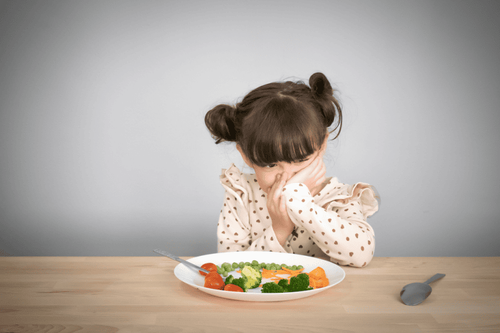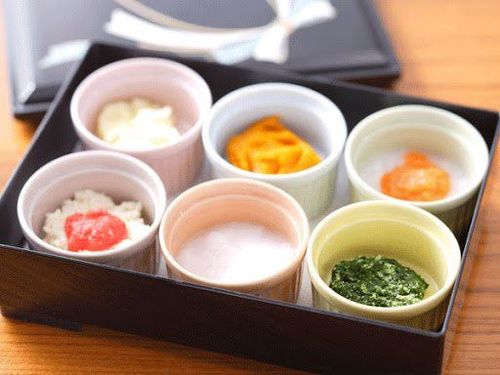This is an automatically translated article.
Children's ability to eat and digest food at the age of weaning is essential for growth and development in the next period. Most babies are able to absorb nutrients and have normal bowel movements after transitioning to solid foods in a reasonable and scientific manner. However, many babies have indigestion when given solid foods, which makes parents very worried.1. What is bloating, indigestion in children?
Children with bloating and indigestion are part of a digestive disorder. This is a health problem of the digestive system that can interfere with daily activities as well as affect a child's development.Signs and symptoms in babies with indigestion, causing digestive disorders may include:
Abdominal pain Nausea Vomiting Diarrhea Constipation Bloating in the stomach Bleeding Anorexia When digestive problems are in Young children are difficult to adjust and do not improve for a long time, causing growth retardation, parents need to take the child to see a pediatrician or a nutritionist.
Here, pediatricians can help diagnose and treat digestive problems. Also, your doctor may order tests to help diagnose the true cause of your digestive disorder, which may include:
Colonoscopy Upper gastrointestinal endoscopy Tablet endoscopy cyst Abdominal ultrasound Flexible sigmoid colon biopsy Intestinal mucosal biopsy Blood test CT scan of the abdomen.

Bé khó tiêu phải làm sao là thắc mắc chung của nhiều bậc cha mẹ
2. Baby has indigestion when eating solids, what to do?
"What to do with baby indigestion?" is a common question asked by many parents when having children with this condition. However, the treatment of digestive problems in children in general, especially those who are learning to eat solid foods, depends on the diagnosis.Professionally, measures include: nutritional counseling and dietary changes for children; medication or require surgical intervention, and physical therapy such as swallowing therapy.
However, before the problem is really serious that needs to be taken to the doctor, parents can apply tips to help improve the problem of indigestion by:
Maintain exclusive breastfeeding until children at least six months old. Let your baby burp after each meal. Maintain tummy time, sit up every day while the baby is awake. If you are breastfeeding, avoid smoking, alcohol and recreational drugs because they can increase the risk of colic in the baby. Regularly massage your baby's tummy gently. When your baby starts solids, start with just one food at a time. Introduce new foods after a few days when your baby has settled into familiar foods. This will help identify any food allergies and give your baby enough time to get used to the new food. Providing a well-balanced diet for babies when they start eating solid foods can help prevent conditions like constipation when they're introduced to solid foods.

Bú sữa mẹ hoàn toàn cho đến khi trẻ 6 tháng tuổi giúp cải thiện vấn đề bé khó tiêu, đầy bụng
3. How to deal with common digestive problems in babies when eating solid foods
3.1. Vomiting Vomiting up a little food is quite common in babies learning to eat solids. This is because the sphincter between the stomach and the esophagus is structurally and functionally incomplete. However, when a baby vomits violently, throws up, or spits out large amounts of food at each weaning meal, it could be a sign of an underlying medical condition.Accordingly, to avoid vomiting, encourage children to start a self-directed weaning diet. The texture of the food should be gradually transitioned, avoiding giving the child too thick or lumpy food from the beginning. Always have your child sit while eating and maintain this position for at least 30 minutes afterward. If the child is vomiting a lot or often, vomiting green or bloody bile, the child is lethargic or sluggish, the child should be taken to the doctor as soon as possible.
3.2. Reflux Some babies may spit up food continuously or may even choke while feeding. This is usually due to a reflux mechanism, when food in the stomach backs up into the esophagus (the tube connecting the mouth to the stomach). The esophagus can become sensitive and irritated by the contents of the stomach. When stomach contents back up into the esophagus, babies can vomit or breathe into the lungs, so hearing hissing sounds in the chest and back is a sign of danger.
These tips can help prevent reflux:
Avoid swaddling your baby too tightly. Feed your baby smaller amounts but more often. Smaller meals can aid digestion and prevent stomach contents from backing up into the esophagus. Introduce slowly, especially the first weaning meals. Always hold the child upright during and after meals for at least 30 minutes. Regularly pat your baby on the back to burp while eating. Gently rub your baby's tummy after a meal. 3.3. Diarrhea Compared with exclusively breastfed babies, including breast milk or formula, infants who are fed solids tend to have thicker and fewer bowel movements per day. However, when your baby has loose, watery, or frequent stools, the baby may have diarrhea. Severe diarrhea can quickly lead to severe dehydration, which should be treated immediately.
However, if the level is mild, parents need to give the child more milk, drink more water. The addition of electrolyte solutions should be according to the doctor's prescription. In addition, diapers should be changed frequently to avoid diaper rash. Always wash your hands with soap after cleaning your baby and before preparing and feeding food to avoid spreading bacteria. Food for children must be hygienic, cooked and boiled, preserved carefully, avoiding unsafe food for children to eat weaning, and discarding leftovers if children do not eat all of it.
3.4. Bloating, indigestion Gas in the intestinal tract is caused by the process of digesting food. This amount of gas can cause indigestion, colic, and bloating in your baby.
Accordingly, it is advisable to limit products made from milk, coffee and gas-producing foods when the baby is just starting to eat solid foods. Besides, the feeding operation is also careful, it is necessary to place the child when eating to avoid swallowing a lot of air. After a meal, parents can gently massage the abdomen to make the child feel more comfortable while absorbing an additional amount of volume in the stomach, contributing to improving the situation of children with indigestion.
In short, indigestion when eating solid foods is one of the common digestive disorders in young children. If parents have children with this condition, they should adjust the weaning diet, burp the baby after eating as well as massage the abdomen or give the child reasonable activity to stimulate the digestive system.. Besides, the baby needs to add the necessary micronutrients: Zinc, selenium, chromium, Vitamins B1 and B6, Ginger, acerola fruit extract (vitamin C),... to improve taste, eat delicious , reach the right height and weight and exceed the standard, have a good immune system, strengthen the resistance to get sick less often and have less digestive problems.
For more nutritional knowledge and child care for each age, parents should regularly visit the website vimec.com and make an appointment with the leading doctors, pediatric and nutrition experts of the National General Hospital. Vinmec when needing advice on children's health.













